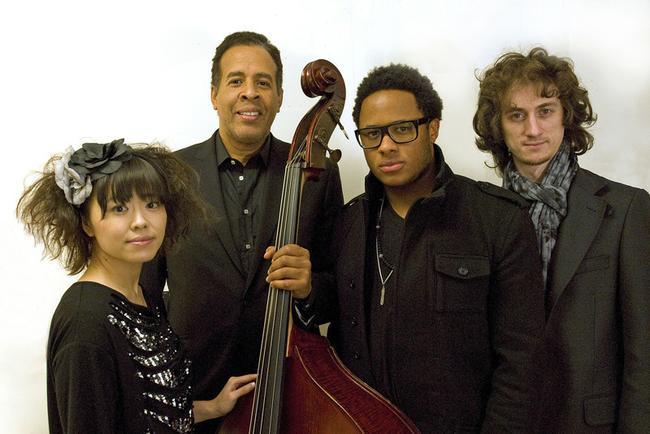Stanley Clarke and Hiromi share a love of music, but that might be all they have in common.
Bassist Clarke has been performing on the American jazz scene for 40 years, and Japanese pianist Hiromi has lived only 31 of those.
He played with New York jazz greats of the 1970s, who he calls “the old guys.” She plays solo concerts to audiences, delighted by her wildly bobbing ponytails and a refusal to define her genre.
Together, the world-renowned artists form a powerful duo.
“It’s kind of like two race cars getting together,” Clarke said. “It’s really exhilarating.”
Their differences are actually exactly what the “We Always Swing” Jazz Series looks for in performers, according to the series’ executive director Jon Poses. The series will feature Clarke and Hiromi at 7 p.m. Tuesday at The Blue Note. Poses books 10 to 12 artists throughout the season, aiming for a variety in gender, age, instrument and musical style.
“We look at artists who bring something different or special to the stage,” Poses said. “It’s meant to be a nice mosaic of modern jazz.”
Clarke and Hiromi usually play together in a Grammy-nominated trio called the Stanley Clarke Band, and have played less than 10 duet gigs. The drummer’s absence is not to the audience’s disadvantage, though. Clarke said duets not only force a bassist and pianist to work harder, but also release the performers from traditional restraints.
“There’s such a freedom that you get when you play duet,” Clarke said. “It’s a really unusual sort of format to play in.”
Performers are also more exposed when they are few in number, which Poses said is to the listener’s advantage.
“The audience will get a remarkable experience where they zoom in and look at a great bass player for a while, then a great piano player,” Poses said. “It’s a very focused kind of presentation.”
The concert is meant to appeal to audiences interested in jazz, but also classical, a tradition in which both musicians were trained.
“What I would expect is some wonderful improvisation (and) some seriously impressive technical ability,” Poses said. “We’re talking about people who have command of their instruments.”
Clarke’s musical career began when jazz pianist Chick Corea invited him to join Corea’s band “Return to Forever” in 1971. The two met in saxophonist Joe Henderson’s band when Clarke was only 18 years old and grew up together. Corea actually introduced Clarke to Hiromi, and she is a Corea-influenced pianist, but Clarke didn’t choose her for that reason.
“It’s not so much that she’s a different piano player,” Clarke said. “She has a different way of hearing music, playing music.”
Clarke’s 40 years of making jazz music has enabled him to watch music evolve, via its musicians.
“(Music) always changes when someone decides they’re going to change something,” Clarke said. “New players come along and have new ideas.”
New players, like Hiromi, might have new ideas, but the shared concepts of jazz improvisation allow communication across generations. Clarke and Hiromi’s audiences can’t even tell their duet “Global Tweak” is entirely improvised.
“We can make it sound like we wrote it,” Clarke said. “We’re both using the same language. When you play jazz music, you’re dealing with a particular language.”








